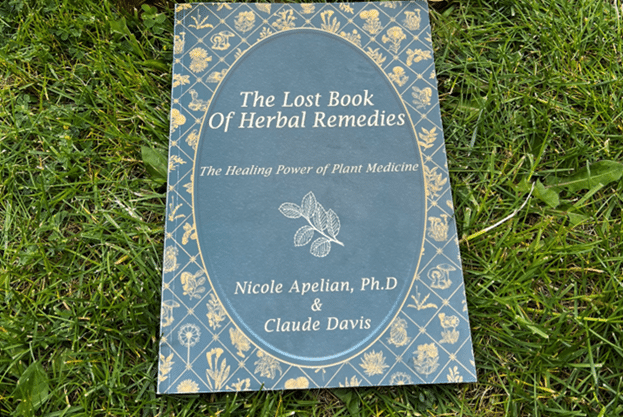According to the World Health Organization (WHO), approximately 40% of pharmaceutical products today, such as aspirin, artemisinin) draw from nature and traditional knowledge.
Today, herbal remedies on their own are becoming increasingly popular, with the global herbal medicine market size estimated to grow by USD $44.75 billion from 2024-2028, reports Technavio, a leading global technology research and advisory company. Amid rising healthcare costs, especially in the United States, individuals are turning to alternatives to expensive pharmaceuticals. This trend makes books like The Lost Book of Herbal Remedies by Nicole Apelian and Claude Davis more relevant than ever.
This best-selling book offers a wide range of herbal remedies that have been used for centuries to supplement traditional medicine. For individuals and families seeking to reduce reliance on costly medications or mitigate the risk of developing resistance, these herbal remedies are invaluable. Many are turning to this book to gain a deeper understanding of herbs and incorporate them into their wellness routines, discovering the diverse benefits these herbs offer.
Before we go further, it is important to note that you must consult your doctor before using the remedies to avoid potential side effects.
What is it About?
The Lost Book of Herbal Remedies, written by Nicole Apelian, a biologist and herbalist, is a comprehensive guide encompassing 181 healing plants and over 550 potent natural remedies. This medicinal herbal reference enables readers to assess their health conditions and determine which herbs can effectively treat them.
Here’s a sample of the herbs and remedies featured in The Lost Book of Herbal Remedies.
- Chamomile: Feeling a bit under the weather or stressed out? Chamomile tea has been a go-to aid since ancient times for its calming and anti-inflammatory properties. Traditionally, this herb is thought to ease anxiety, promote better sleep, and soothe digestive issues. However, chamomile can interact with certain medications and may cause allergic reactions in some individuals, so it’s wise to consult with a medical professional before using it.
- Peppermint: Peppermint oil is recognized for its potential to alleviate symptoms such as bloating and cramping due to its muscle relaxant properties. It’s important to note that peppermint oil should be avoided by children and individuals who are pregnant or breastfeeding, as its safety in these populations has not been established.
- Ashwagandha: Ashwagandha is a popular adaptogenic herb used in Ayurvedic medicine–a traditional, ancient Indian whole-body healing system–that may support stress management and overall well-being. It’s essential to consult a doctor before using ashwagandha, particularly for individuals who are pregnant or breastfeeding, those with underlying health conditions, or those taking medications. Ashwagandha can potentially lower blood sugar levels and may interact with certain medications.
- Echinacea: This herb has been incorporated into wellness routines for centuries by Indigenous North American tribes to support the immune system. Some studies suggest it may help shorten the duration of a cold, but more research is needed to confirm its effectiveness. In Europe, Echinacea is commonly used to ease symptoms such as sore throat and cough during the common cold. If you have an autoimmune condition, you should consult your doctor before using it.
- Elderberry: A staple of European folk medicine for centuries, this plant is believed to support the immune system. Some studies suggest it might reduce the duration of flu symptoms. However, handle elderberries with care, as improper preparation can be toxic. Always consult with a doctor before using elderberry, especially for children, pregnant or breastfeeding individuals, or those with underlying health conditions.
Conclusion
The Lost Book of Herbal Remedies is a valuable resource for those seeking alternative solutions to common health issues. This user-friendly guide offers readers a diverse array of enduring herbal remedies. However, it’s crucial to approach herbal treatments with caution and consult healthcare professionals to avoid potential risks or interactions with existing medications. By integrating these natural remedies responsibly into their wellness routines, individuals can explore new avenues for maintaining and enhancing their health.
Follow The Lost Book of Herbal Remedies on Instagram and Facebook for more health and wellness tips!


